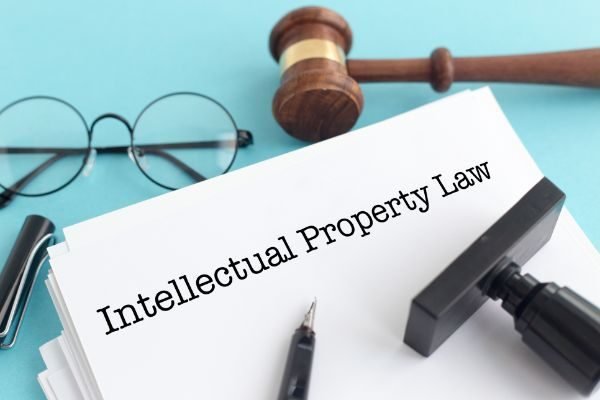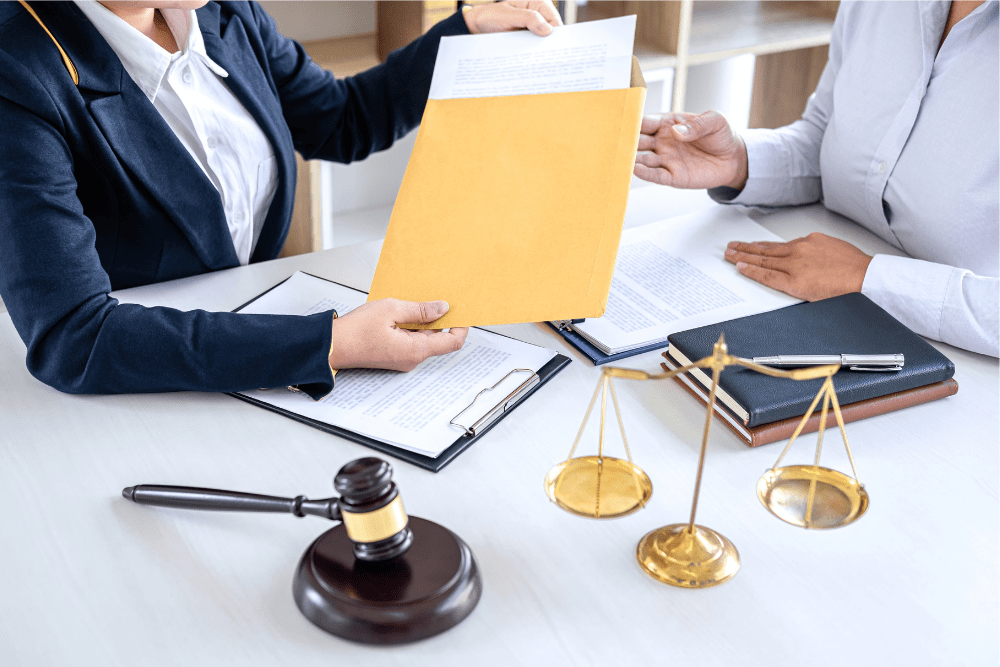
The Role of an Intellectual Property Lawyer in Safeguarding Innovation
Intellectual Property Lawyer
Intellectual property lawyer has become critical for individuals and corporations in the modern world, where creativity and innovation drive progress. From brand names to licenses and copyrights, protected innovation envelops an expansive range of theoretical resources that require lawful insurance. This is where the aptitude of a protected innovation legal counsellor becomes an integral factor.
Introduction to Intellectual Property
Intellectual property (IP), including elusive resources, remains at the forefront of current development and inventiveness. From historic innovations to charming artistic works and famous brand logos, IP addresses the products of human resourcefulness.
Licensed innovation alludes to manifestations of the brain that hold financial worth and require legitimate assurance. These incorporate licenses, brand names, copyrights, and proprietary innovations, each filling in as a foundation for development and economic development. Defending licensed innovation freedoms couldn’t be more significant in the present information-based economy.
It boosts development and inventiveness and cultivates a cutthroat commercial centre where thoughts can prosper and organizations can flourish. This presentation makes way for investigating the complex universe of protected innovation regulation.
What is intellectual property?
Intellectual property refers to creations of the mind, such as inventions, abstract and creative works, plans, images, names, and pictures utilized in business. It incorporates a few legitimate rights, including licenses, brand names, copyrights, and proprietary innovations, which empower makers and trend-setters to control the utilization of their manifestations.

importance of Protecting Intellectual Property
Safeguarding intellectual property fosters innovation and advances financial development. Without sufficient insurance, makers risk abuse and encroachment, which can smother advancement and impede progress.
Understanding Intellectual Property Law
Understanding intellectual property law is essential in today’s knowledge-driven economy, where protecting intangible assets is paramount. Protected innovation regulation envelops a different scope of lawful principles and guidelines pointed toward shielding the manifestations of the brain.
Protected innovation freedoms are significant in boosting advancement and encouraging financial development, from creations and scholarly attempts to mark logos and proprietary advantages. This area of regulation envelops different types of assurance, including licenses, brand names, copyrights, and proprietary innovations, each with its own arrangement of rules and guidelines.
Individuals and businesses can ensure their innovations are adequately protected by delving into the complexities of IP law.
Types of Intellectual Property
Intellectual property can be broadly categorized into four main types:
Patents: Give innovators of novel and essential discoveries exclusive rights.
Brand names: safeguard images, names, and trademarks to recognize labour and products.
Copyrights: Give authors of original abstract, creative, and melodic works limited rights.
Proprietary innovations: protect secret data that gives you an upper hand.
Overview of Intellectual Property Rights
Intellectual property rights give lawful proprietorship and command over theoretical resources, permitting makers to keep others from utilizing, selling, or replicating their work without consent. These freedoms are enforceable through common and criminal prosecution and regulatory procedures.
Role of an Intellectual Property Lawyer
The role of an intellectual property lawyer is essential in defending the imaginative and creative undertakings of people and organizations. These genuine specialists work to give excellent guidance and depictions concerning getting, maintaining, and exploiting authorized development opportunities.
Intellectual property lawyers conduct thorough examinations, draft patents, trademarks, and copyrights, negotiate agreements, and litigate infringement disputes. Their capacity loosens across various specific areas inside authorized development guidelines, similar to patents, brand names, protected innovation, and restrictive benefit guidelines. IP lawyers play a crucial role in safeguarding innovation assets using their expertise.
Responsibilities and Duties
Licensed innovation attorneys give lawful counsel and portrayal to people and organizations concerning securing, authorizing, and taking advantage of licensed innovation freedoms. Their obligations might include:
- We are exploring the legitimacy and extent of licensed innovation privileges.
- Drafting and recording patent, brand name, and copyright applications.
- We are arranging authorization arrangements and settlements.
- They are prosecuting encroachment debates in court.
- Specializations inside IP Regulation
Protected innovation regulation envelops different specific regions, including:
Patent Regulation: Manages the insurance of developments and mechanical advancements.
Brand name regulation: spotlights on enlisting and authorizing brand names and administration marks.
Intellectual property regulation: locations the security of unique works of origin.
Proprietary advantage Regulation: Covers the assurance of private business data.

Instructive Foundation
A licensed innovation legal counsellor regularly requires a four-year college education and a Juris Specialist (J.D.) degree from a certifying graduate school. Specific coursework in licensed innovation regulation and related fields is enthusiastically suggested.
Analytical Skills and Attention to Detail
Influential intellectual property lawyers have solid logical abilities and scrupulousness, empowering them to decipher complex lawful rules, examine specialized reports, and draft exact authoritative archives.
How to Find an Intellectual Property Lawyer
To find an intellectual property lawyer, research online legal directories and seek referrals from trusted sources such as colleagues, companions, or industry affiliations. Assess potential legal advisors in light of their experience, specialization in IP regulation, and history of practical cases.
Plan conferences with lawyers to discuss your necessities and survey their skills and approaches. To guarantee similarity, ask about their expense structure, correspondence style, and accessibility. Also, consider factors such as responsiveness and readiness to address your interests. Through thorough research and consultations, you can successfully find the correct IP lawyer.
Research and Referrals
When seeking an intellectual property lawyer, leading intensive exploration and looking for references from confided-in sources, like partners, proficient affiliations, and online legitimate registries, is fundamental.
Considerations before Hiring
Before hiring an intellectual property lawyer, consider their experience, expertise, aptitude, history, and charge structure. Planning an underlying counsel to discuss your particular requirements and targets is also prudent.
The Process of Working with an Intellectual Property Lawyer
Working with an intellectual property lawyer typically begins with an initial consultation to discuss your intellectual property needs and objectives. During this meeting, the lawyer evaluates your case, offers legal advice, and develops strategies to protect your IP rights. Following the conference, the attorney will thoroughly evaluate your case and foster a custom-made, legitimate methodology to accomplish your objectives.
This might include drafting and documenting patent, brand name, or copyright applications, arranging permitting arrangements, or contesting encroachment questions. Meanwhile, the lawyer will inform you, address your concerns, and advocate.
Initial Consultation
During the underlying counsel, the licensed innovation attorney will survey your case, give a lawful exhortation, and examine likely methodologies for safeguarding or implementing your protected innovation privileges.
Case Evaluation and Strategy
Given the data accumulated, the attorney will thoroughly assess your case and foster a customized lawful methodology to accomplish your targets, whether it includes getting a patent, enlisting a brand name, or contesting an encroachment debate.

Filing and Prosecution
If essential, the attorney will assist you in drafting and recording the proper authoritative reports, like patent applications or brand name enrollments. They will likewise address you in regulatory procedures under the watchful eye of government organizations and courts.
Challenges and Common Issues in Intellectual Property Law
Challenges and common issues in intellectual property law often revolve around the complexities of protecting intangible assets in a rapidly evolving digital landscape. A significant challenge is infringement, where unauthorized parties exploit protected IP, leading to legal disputes and financial losses.
Putting permitted innovation privileges into practice presents another challenge. This involves investigating global commercial centre challenges related to granting freedoms across different wards, combating forging and robbery, and conducting cautious checks and aggressive efforts to avoid encroachment.
Advances like man-made intelligence and blockchain further entangle matters, bringing up issues about possession and obligation. Addressing challenges needs innovative legal strategies and global collaboration.
Infringement
One of the primary challenges in intellectual property law is combating infringement, where unapproved parties use or take advantage of safeguarded licensed innovation without consent, prompting expected legitimate questions and monetary misfortunes.
Enforcement of Rights
Enforcing intellectual property rights can be complex and costly, requiring diligent monitoring, tireless checking, continuing perception, proactive execution measures, and critical indictment to stop infringers and defend huge assets.
Recent Developments in Intellectual Property Law
Recent developments in intellectual property law reflect the ongoing evolution of technology and globalization, introducing potential open doors and difficulties for freedom holders and experts. Advancements like AI, blockchain, and 3D printing reshape IP enforcement.
Courts and policymakers are wrestling with issues like computerized robbery, information security, and the assurance of programming developments.
Also, the globalization of business sectors has prompted expanded harmonization of licensed innovation regulations and settlements across purviews, working with worldwide exchange and coordinated effort while raising worries about implementation instruments’ consistency and adequacy. As technology progresses, IP laws will adapt to safeguard innovation.
Impact of Technology
Technological advancements, such as artificial intelligence, blockchain, and 3D printing, have presented new difficulties and opened doors in protected innovation regulation, requiring imaginative, lawful answers to address arising issues.
Globalization and IP Protection
The globalization of business sectors and the advanced economy have elevated the significance of worldwide licensed innovation insurance, requiring harmonizing regulations, deals, and requirement instruments across locales.
Benefits of Hiring an Intellectual Property Lawyer
Hiring an intellectual property lawyer offers several benefits, including expert guidance in navigating the complexities of intellectual property law, guaranteeing legitimate insurance of essential resources, and boosting the possible worth of developments and manifestations.
These legitimate experts have particular information and involvement with drafting and documenting patent, brand name, and copyright applications, arranging authorizing arrangements, and prosecuting encroachment questions. Utilizing their expertise, individuals and businesses can safeguard their intellectual property.
Protection of Innovation and Creativity
People and organizations can safeguard their advancements, innovations, and inventive works from unapproved use, cheating, or misappropriation. They can protect their high ground and part of the general business by interfacing with an authorized and legitimate guide.

Avoidance of Legal Disputes
Proactive, legitimate guidance and authorization systems can assist with forestalling possible debates and clashes, saving time, assets, and notoriety harm related to suit and encroachment claims.

Conclusion
In conclusion, intellectual property lawyers safeguard innovation, creativity, innovativeness, and monetary flourishing by giving lawful ability and backing to securing, implementing, and taking advantage of licensed innovation privileges. By understanding the intricacies of licensed innovation regulation and utilizing key lawful arrangements, people and organizations can access their essential resources and explore the steadily developing scene of licensed innovation privileges.
How long does it take to obtain a patent?
The process of obtaining a patent can vary significantly depending on factors such as the complexity of the invention, the backlog of applications at the patent office, and the jurisdiction. On average, it may take several years to file for a grant.
Can I enforce my intellectual property rights internationally?
Yes, intellectual property rights can be enforced internationally through various mechanisms, including the Paris Convention and the World Intellectual Property Organization (WIPO) treaties. However, enforcement may vary depending on local laws and regulations.
What should I do if I suspect someone is infringing on my intellectual property rights?
Suppose you suspect an infringement of your intellectual property rights. In that case, it's advisable to consult with an intellectual property lawyer to assess your legal options and develop a strategy for enforcement, which may include sending cease-and-desist letters, initiating litigation, or negotiating settlements.
How can I monetize my intellectual property assets?
Several ways to monetize intellectual property assets include licensing, franchising, selling, or using them as collateral for financing. An intellectual property lawyer can help you explore these options and maximize the value of your intellectual property portfolio.








